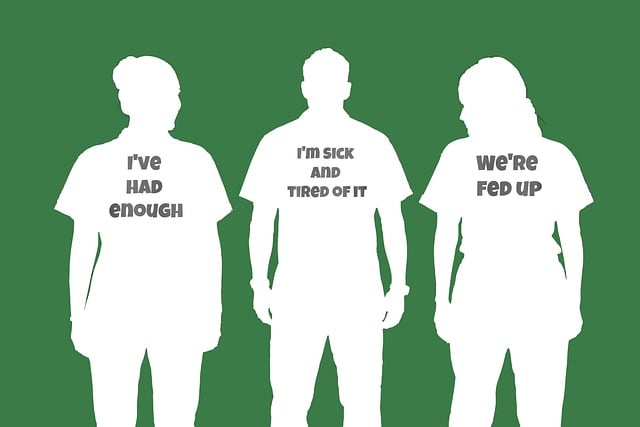Middlesex County sober living homes serve as transitional communities post-substance abuse treatment, providing a supportive environment for individuals to refine coping skills, solidify sobriety, and reintegrate into society. These homes emphasize personal responsibility, community engagement, individual autonomy, and mutual respect among residents. They offer comprehensive services including therapy, counseling, educational programs, vocational training, and peer support groups to facilitate successful reintegration. Unlike rehab centers, these homes focus on sustained sobriety through community involvement and personal accountability. Residents are involved in household chores and group activities, fostering a sense of belonging and shared purpose. The homes prioritize self-care and healthy lifestyle choices as integral to maintaining well-being, ensuring recovery is a sustainable, integrated part of life. They are strategically positioned with access to resources and support networks tailored to individuals recovering from substance use disorders. In Middlesex County, these homes offer a robust recovery environment, emphasizing community integration and support, with an emphasis on long-term sobriety and personal development. The comprehensive approach includes structured living environments, therapeutic activities, and integration with local organizations for job training and education. This multifaceted system reflects Middlesex County's dedication to supporting individuals in their recovery journey and reducing the stigma associated with substance use disorders.
In Middlesex County, a network of sober living homes offers a structured environment for individuals transitioning from treatment centers to independent living. This article delves into the multifaceted support system within these homes, emphasizing their pivotal role in long-term recovery success. We will explore the defining characteristics that distinguish Middlesex County’s sober living homes, the tangible benefits they provide, and the critical role of community involvement in fostering a supportive recovery journey. Furthermore, we will highlight the array of support systems, activities, and programs tailored to enhance the well-being of residents. Lastly, we will spotlight the resources available in Middlesex that contribute to sustainable recovery outcomes. Join us as we shed light on the transformative power of sober living homes in Middlesex County.
- Understanding Middlesex County Sober Living Homes
- The Benefits of Transitioning to Sober Living
- Criteria for Choosing the Right Home
- Support Systems and Community Involvement
- Activities and Programs in Sober Living Environments
- Long-Term Recovery Success and Middlesex Resources
Understanding Middlesex County Sober Living Homes

Middlesex County sober living homes offer a structured environment for individuals transitioning from substance abuse treatment programs to mainstream society. These residences provide a supportive atmosphere where recovering individuals can continue to develop healthy coping skills and reinforce the behaviors necessary for sustained sobriety. The homes adhere to a set of principles that prioritize personal responsibility, community, individual autonomy, and mutual respect among residents. They often feature a range of services including therapy, counseling, educational programs, and vocational training to facilitate reintegration into the workforce and society at large. These homes are not rehabilitation centers; rather, they serve as intermediate steps for those who have completed more intensive treatment but still require a supportive network to navigate life’s challenges without relying on substances.
The model of recovery in Middlesex County sober living homes is built upon the premise that sustained sobriety is best achieved through peer support, personal responsibility, and engagement with the community. Residents are encouraged to contribute to the household responsibilities and participate in group activities, fostering a sense of belonging and shared purpose. The homes also emphasize the importance of self-care and healthy lifestyle choices, including regular exercise, proper nutrition, and adequate sleep, which are integral to maintaining mental and physical well-being. These elements combine to create an environment where recovery is not just a process managed within the home’s walls but a way of life that can be sustained outside its boundaries.
The Benefits of Transitioning to Sober Living

transitioning to a sober living home represents a pivotal step in an individual’s recovery journey, offering structured environments that promote sustained abstinence from substances and the development of healthy, drug-free lifestyles. These homes provide a supportive community where residents can practice the skills learned during formal treatment programs, such as coping strategies for stress and triggers without resorting to substance use. The benefits are manifold: residents enjoy increased autonomy alongside accountability measures, which help them transition more smoothly from clinical settings back into the wider community. Sober living homes also foster a sense of camaraderie among residents, who encourage each other’s recovery through shared experiences and mutual support. This peer-to-peer interaction is often complemented by mandatory participation in 12-step or similar recovery programs, further reinforcing the commitment to sobriety. Additionally, these homes typically require residents to engage in gainful employment or educational pursuits, which helps restore a sense of purpose and normalcy to daily life. The practical aspects of managing one’s own living space and responsibilities within a sober environment prepare individuals for independent living while maintaining their recovery as a priority. In Middlesex County, these homes are strategically situated to offer access to a variety of resources and support networks that cater specifically to the needs of those in recovery, making them an integral part of the continuum of care for individuals committed to overcoming substance use disorders.
Criteria for Choosing the Right Home

When seeking a Middlesex County Sober Living Home, the criteria for choosing the right facility are crucial to ensure a supportive and sustainable recovery environment. Prospective residents should consider the home’s proximity to support networks, as having a nearby community can offer additional accountability and encouragement. Additionally, it’s important to assess the home’s structure and rules; these should be conducive to long-term sobriety, providing a balance between independence and structured support. The quality of the staff is also a significant factor; staff members should have experience in addiction recovery and offer a compassionate approach to guidance. Furthermore, the home should offer various therapeutic programs and activities that align with individual needs, including access to counseling, group therapy, and educational workshops. A robust aftercare program is equally vital for a smooth transition from structured living to independent living while maintaining sobriety. Lastly, the cost of the program should be reasonable, and the home should accept various forms of insurance or offer payment plans to accommodate different financial situations. By carefully evaluating these criteria, individuals can find a Middlesex County Sober Living Home that not only meets their immediate needs but also supports their long-term recovery journey.
Support Systems and Community Involvement

Middlesex County’s sober living homes offer a robust support system that is deeply integrated into the community, fostering an environment where residents can thrive in recovery. These homes are not isolated sanctuaries; they are part of a larger network of resources and individuals committed to sustaining sobriety. The support systems within these residences extend beyond the immediate peer group, as residents engage with local organizations and recovery programs that provide additional structure, accountability, and motivation. Community involvement is a cornerstone of this approach, with volunteers from various backgrounds offering their time and expertise to assist with everything from job training to health education. This collaborative effort ensures that individuals in recovery have access to a wide array of support, creating a safety net that can address both the immediate challenges and long-term goals of those committed to a sober lifestyle. The community’s active participation not only aids those in recovery but also promotes awareness and understanding of substance use disorders, thereby reducing stigma and fostering an inclusive and supportive environment for all residents.
Activities and Programs in Sober Living Environments

Residents in Middlesex County sober living environments engage in a variety of structured activities and programs designed to support their recovery journey. These activities foster both personal growth and community building, which are integral to maintaining long-term sobriety. Common offerings include group therapy sessions that encourage sharing experiences and coping strategies among peers, reinforcing the importance of social support networks. Additionally, educational workshops on relapse prevention, stress management, and life skills training are provided to equip residents with practical tools for daily living.
Moreover, many sober living homes in Middlesex County organize recreational activities that promote physical health and emotional well-being. These can range from yoga and meditation classes to team sports like soccer or basketball, offering residents opportunities to exercise, build confidence, and learn the value of discipline and commitment. Excursions to local attractions, volunteer opportunities within the community, and regular meetings with recovery coaches further enrich the sober living experience, providing a well-rounded support system that extends beyond the home environment. These activities and programs are tailored to address individual needs and are an essential part of the recovery process, helping residents navigate their path to a fulfilling, substance-free life.
Long-Term Recovery Success and Middlesex Resources

Middlesex County’s commitment to long-term recovery for individuals struggling with substance use disorder is evident in the robust network of resources available within its communities. Sober living homes serve as a cornerstone in this network, providing structured environments that offer stability and support for those transitioning from treatment programs to independent living. These residences are designed to facilitate a recovery-oriented lifestyle, where residents can develop healthy routines, engage in peer support, and participate in various therapeutic activities that promote sustained sobriety. The homes also emphasize the importance of community integration, enabling residents to rebuild or establish new social connections away from environments that may have previously contributed to their substance use.
The success of long-term recovery is often contingent on the availability and quality of ongoing support systems. Middlesex County’s sober living homes are complemented by a comprehensive array of local resources, including outpatient clinics, counseling services, and mutual aid groups like Alcoholics Anonymous (AA) and Narcotics Anonymous (NA). These resources provide a multifaceted approach to recovery, addressing not only the psychological and emotional aspects but also the practical challenges individuals face during their journey. The county’s proactive stance in maintaining these resources underscores its dedication to long-term recovery and reflects a deep understanding of the complex nature of substance use disorders. This holistic approach contributes significantly to the well-being of residents, enhancing their chances for a sustained recovery and a fulfilling life post-substance use.
Middlesex County’s network of sober living homes plays a pivotal role in the recovery journey for many individuals. These homes offer structured environments that foster independence, personal growth, and sustained sobriety. The transition from more intensive treatment programs to these homes is often facilitated by benefits such as community support, life skills development, and access to resources tailored to individual needs. Choosing a home that aligns with one’s recovery goals is crucial, ensuring a supportive and conducive living situation. With robust support systems, active community engagement, and a variety of activities and programs designed to promote well-being and recovery, Middlesex County’s sober living homes are more than just places to live—they are foundations for building a new life in recovery. The success stories that emerge from these homes serve as testaments to the effectiveness of these communities in supporting long-term recovery.

